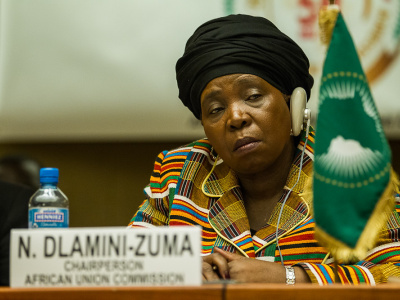
The International Criminal Court, Africa and the African Union: What way forward?
With South Africa and Burundi withdrawing from the International Criminal Court (ICC) and indications that other African countries may follow, Philomena Apiko and Faten Aggad analyse the underlying reasons behind the current relationship between the ICC and the African Union.
Summary
The African Union (AU) Member States were instrumental in the creation of the Rome Statute and the establishment of the International Criminal Court (ICC). Senegal was the first to ratify the Rome Statute. Niger and the Republic of Congo were part of the 10 instruments simultaneously deposited to make the sixtieth ratification that brought the Rome Statute into force, and Uganda referred the first case to the ICC. Currently the ICC is dealing with 10 cases under investigation, nine of which involve African countries, namely Sudan, the Democratic Republic of the Congo, Uganda, the Central African Republic, Kenya, Libya, Côte d’Ivoire and Mali. In addition to this, four countries – Guinea, Nigeria, Burundi and Gabon – are under preliminary investigation.
However, in a string of decisions from 2008-2016, the AU Assembly has criticised some of the ICC’s prosecutions and investigations. Subsequently, in a letter dated 19 October 2016, South Africa notified the United Nations (UN) Secretary General (UNSG) of its intention to withdraw from the ICC, arguing, ‘The Republic of South Africa has found that its obligations with respect to the peaceful resolution of conflicts at times are incompatible with the interpretation given by the International Criminal Court of obligations contained in the Rome Statute of the International Criminal Court.’ South Africa’s withdrawal will take effect in October 2018. Just a few days earlier, on 12 October 2016, the Burundian parliament voted in favour of withdrawal from the ICC. The president backed the parliament’s decision on 19 October 2016 when he signed a decree allowing the country to withdraw. Burundi’s notified the UNSG of its intention to withdraw from the Rome Statute on 27 October 2016. The Gambia, Uganda and Namibia have also announced their intention to withdraw; however, they are yet to formally notify the UN of their intention. It is expected that more countries, such as Kenya, will also withdraw, signalling a possible start of a massive withdrawal of African countries from the ICC.
The tensions between African countries and the ICC have built up over the years. But what is behind it? What role did the AU play? What are the alternatives? The paper will analyse the underlying reasons behind the current relationship between the ICC and the AU. It will examine the narratives, which influence how the AU and its member states view the ICC’s role as a judicial body try international crimes.
The paper will also analyse the formal mandate of the AU in dealing with impunity and what steps it has take towards the extending the jurisdiction of the continental court to try international crimes.




